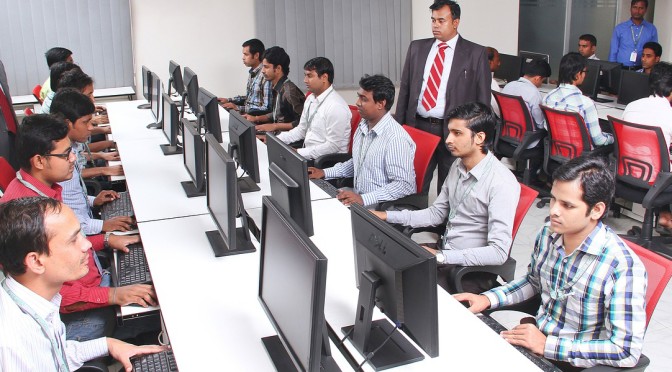
There is no single strategy to crack the UPSC Civil Services Examinations 2017. Different people have followed different approaches and have successfully passed the exam with high scores. It really doesn’t matter what your strategy is. All that you will need is a rigorous preparation of 1 year that is systematic and covers every aspect needed to successfully pass this exam. The article runs you through one of the systematic approaches that can suit anybody, who is aspiring success in this exam.
The new pattern, which has been introduced in 2017 by the UPSC for civil service examinations, have 2 exams: Preliminary (for qualifying for the mains) and Mains, followed by a Personality test. Mains has 9 papers – Four General Studies, One Essay, Two optional papers (same subject) and two language papers. They altogether carry a total of 1750 Marks.
Adding to this, 275 Marks has been allotted for the Personality Test. So, a total of 2025 Marks decides the fate of the candidate, whether he/she would be in the Final List or not.
For all of the above, one must proceed in a systematic manner so as to clear in as much less attempts as possible.
The article throws insights on how to begin your study for the UPSC exam, then how to continue with a full flow, and how to get certain things right for standing out from the competition.
Your first step should be getting towards the foundation stronger. Do not ignore because they are school texts. They are written in a simple and lucid manner that not only helps you easily study, but quickly grasp difficult concepts, lay a strong foundation for further study, and also save a lot of time.
You can begin your study with NCERT texts of standard 6 and continue till Standard 12 texts for all the relevant subjects including, History, Political Science, Geography, Economics, Arts, Culture and Science.
After you have got your concepts strong, you can now move on to the reference books that provides in depth understanding of the same concepts for which you laid a strong foundation with NCERT textbooks.
History: India since Independence– new edition (Bipan Chandra),
India’s Struggle for Independence – Bipan Chandra,
IndiaAfter Gandhi: The History of the World’s Largest Democracy,
Mastering Modern World History – New Edition – Norman Lowe
Economics: Indian Economy: For Civil Services Examinations 5thEdition (2013) – Ramesh Singh
Polity: Indian Polity for Civil Services Examinations 4th Edition – Laxmikanth,
Select Constitutions: 16th Edition – S Chand
Geography: Geography of India- Majid Hussain
Certified Physical and Human Geography – GohCheng Leong
Ethics: Ethics In Governance
Art& Culture: Trends in Indian Culture and Heritage: For Civil Services
International Relations: India’s Foreign Policy – Muchkund Dubey,
Challenge and Strategy: Rethinking India’s Foreign Policy – Rajiv Sikri
Others:
India 2016 – Publication Division, Govt. of India
Economic Survey 2015-2016
Social Problems in India 2 Edition – Ram Ahuja
Public Institutions in India: Performance and Design – PRATAPA BHANU MEHTA
Indian Social System – Ram Ahuja
The list is only for the mandatory subjects. You will have to further choose the reference books for your optional subjects as well.
You might feel that the list of reference books is large. However, you don’t have to worry once you are in the full flow.
It is certainly not sufficient if you are thorough with your concepts. You should also supplement your studies with reading newspapers, in order to get updated about current affairs, city news, state news, country news, international news, sports and other updates on varied topics.
If reading newspapers become mandatory for getting regular updates on what’s going on around you, reading magazines like Frontline and The Economics for getting updates about the news and views on politics, national and state affairs is also equally important. And, reading ‘’Civil Service Mentor’’ magazine and ‘’Yojana’’ would also be a good idea.
Just reading does not put an end. You will have to form an opinion of your own about what you read from these. You have to get a deep understanding about the issues you read, analyse them and frame a strong opinion about them. This will help you in tackling the essay also section with ease. This will also help you in a great way for confidently facing the personal interview.
Even if your concepts are strong, and you are up-to-date with current affairs, politics, and social issues, another aspect that can help you stand out of competition is an impeccable writing skill.
UPSC doesn’t tolerate candidates writing at a mediocre or school level. It has set a good standard for maintaining its actual worth in the field of education and the future prospects it offers to the candidates. Thus, the exam expects candidates to be very sound in their communication that helps them in answering the questions with complete clarity and readability.
Going through this would definitely help in getting your writing skills right: Vinit Kumar’s answer to How can I improve my writing skills for the civil service examination?
Improving on your writing skills cannot happen in a day. It has to happen constantly and can be acquired over a period of time.
Conclusion: If you still haven’t started your preparation, then you need not worry at all. More the time you have, the more you get distracted. 12 months of rigorous study should be more than enough. So, from August 2016 to August 2017, you get exactly 12 months. Henceforth, the time is the ideal time to start preparing. However, make sure that you do not further delay, as you have to be ready with the pre-requisites to then start your actual preparation. So, begin your study in August so that you don’t fall back and end up leaving something without not being studied.